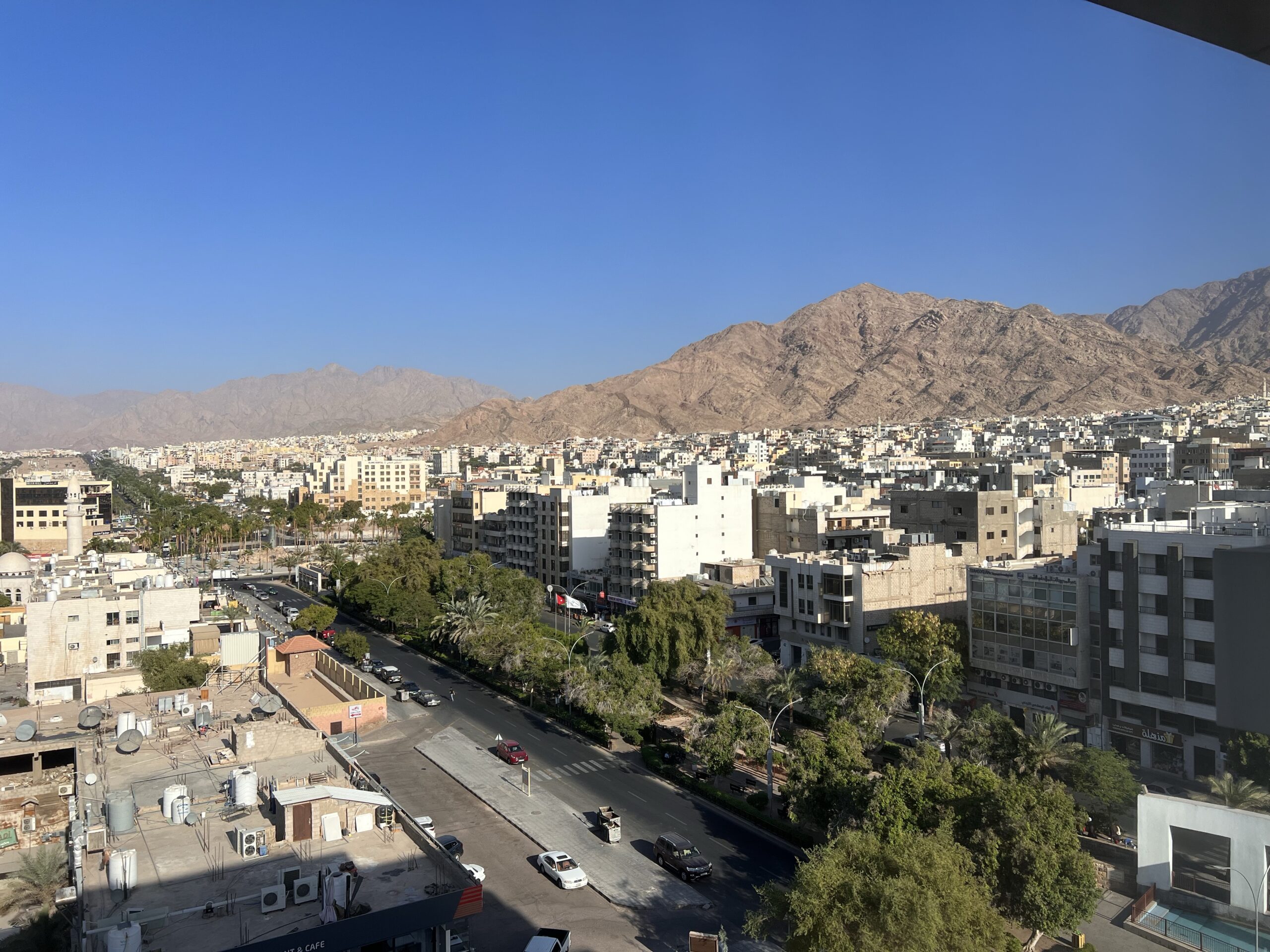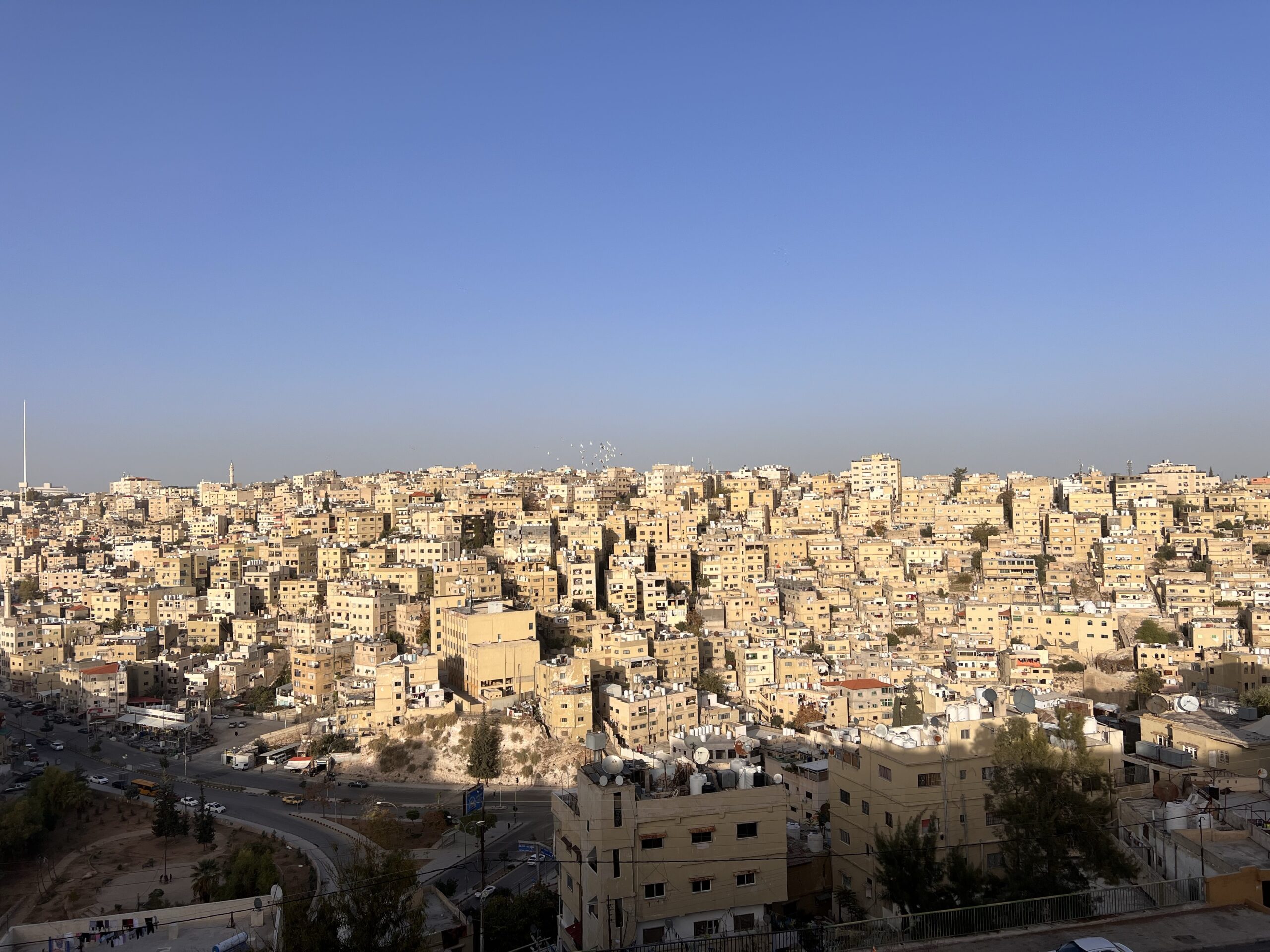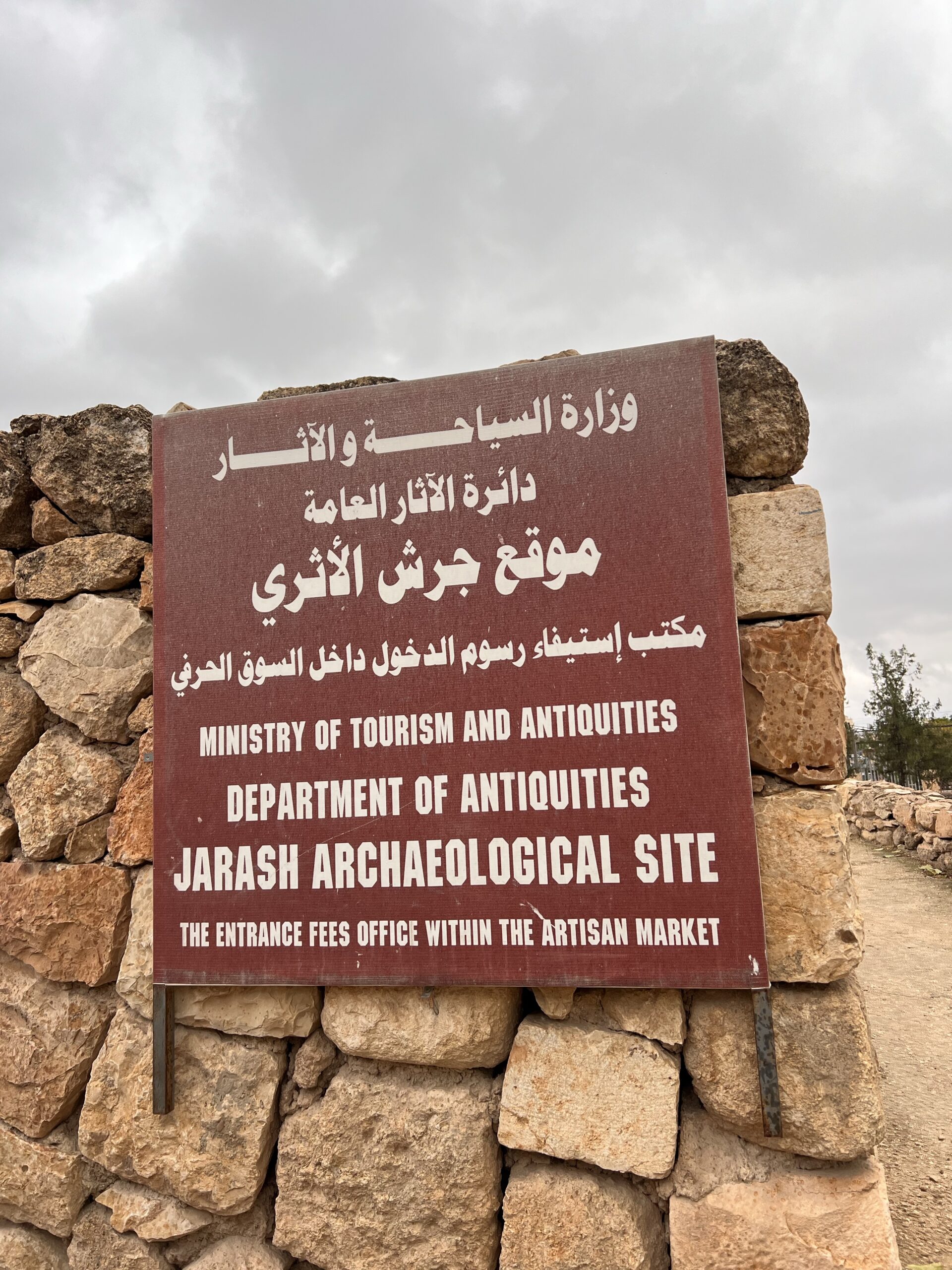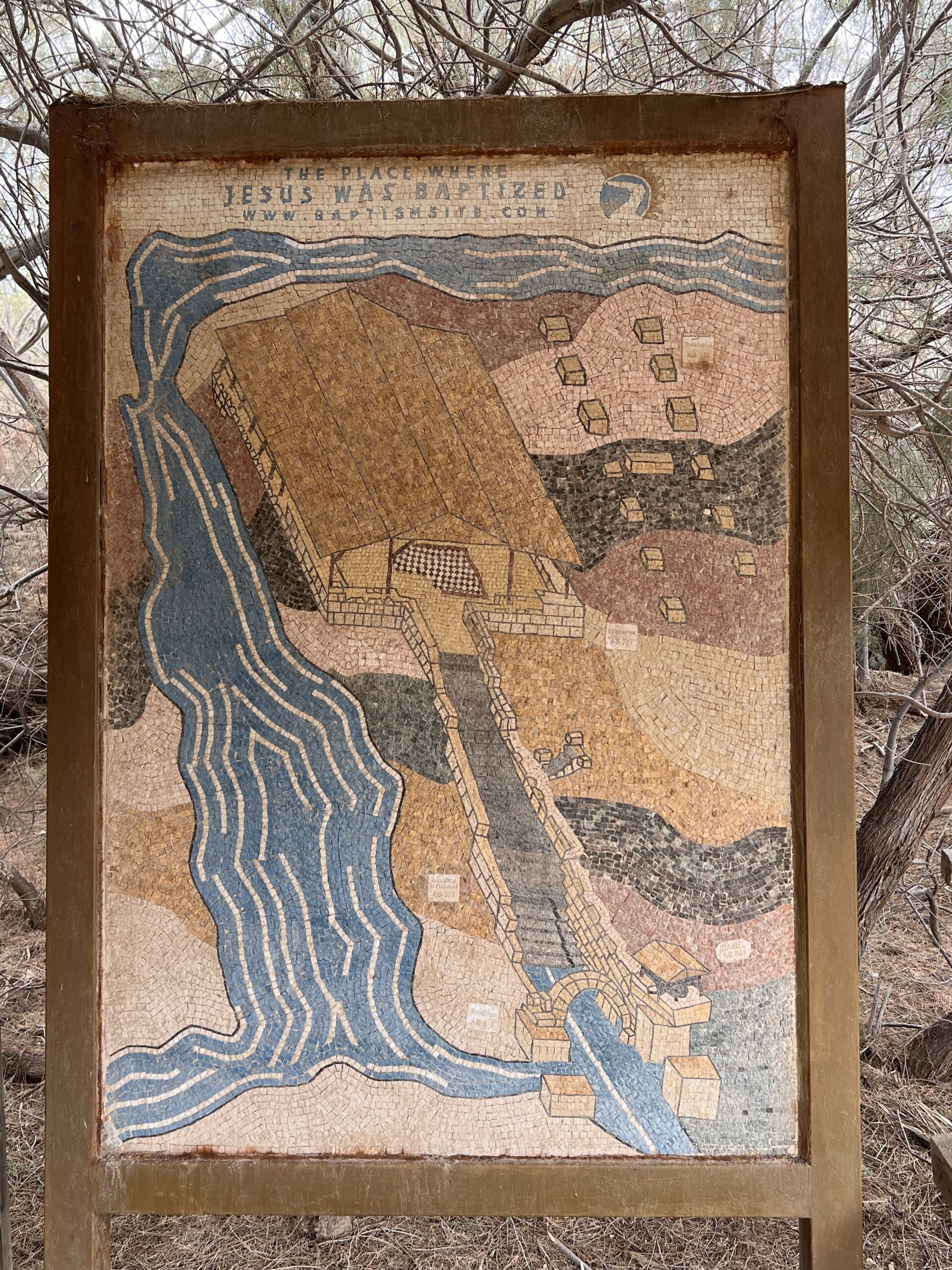
Perched on the north-eastern shores of the Red Sea, Aqaba is the gateway to Jordan’s sun, sea and exquisite coral reef. Divers will be treated to schools of fish in kaleidoscope colours and soft vivid coral gardens hanging from the caverns. There are shipwrecks from WWII and even some submerged vintage motorcycles. For those who don’t want to plunge too deep, the coral lies only a few feet beneath the surface so good for snorkellers too.

Aqaba carries the relaxed small-town atmosphere of a popular local getaway. The town offers a sociable stopover en route to the diving and snorkelling clubs to the south and the big destinations of Wadi Rum and Petra. It’s also an obvious place to break a journey to or from Israel and the Palestinian Territories or Egypt. It is known for its stunning Red Sea beaches, rich history, and diverse marine life.
Sharif Al Hussein Bin Ali Mosque

Named after the leader of the Arab Revolt in 1916 and the Sharif of Mecca, Aqaba’s prize mosque is possibly the city’s most striking piece of architecture. With gleaming white stone, detailed minarets and graceful arches its facades have become a shining beacon and symbol of strength and power. It’s especially beautiful lit up at night for evening prayers. Inside, the polished marble courtyards feel just as serene.
Aqaba Fort

The fort (currently closed for renovation with no set reopening date) was built between 1510 and 1517, as attested by the Arabic inscriptions inside the monumental gateway, and was used as a khan (travellers’ inn) for pilgrims on their way to Mecca. The Ottomans occupied the castle until WWI when, in 1917, the fortress was substantially destroyed by shelling from the British Royal Navy. The Hashemite coat of arms above the main entrance commemorates the Arab Revolt that swept through Aqaba, ousting the Turks.
Arab Revolt Square

The importance of the Plaza lies in its historical value. It embraces the flag of the Great Arab Revolt, and the house of the Leader of the Arab Revolution, Al Hussein Bin Ali. It bears a deep significant national symbolism as the first Jordanian land set foot on by the armies of the revolution led by Al Sharif Hussein bin Ali. It is also the site where the first bullet of the Arab Revolt was shot. The fort is now home to the Giant Flag, the sixth tallest flag in the world.
Relax on the beaches


Aqaba is famous for its beautiful beaches with soft white sand and clear blue waters. Spend a day relaxing on the beach, soaking up the sun, and enjoying water sports like jet skiing, parasailing, or banana boat rides.
Diving in the Red Sea

Aqaba boasts some of the most spectacular coral reefs in the world. Explore the underwater wonders of the Red Sea by snorkeling or diving. There are numerous dive centers and tour operators offering guided trips for both beginners and experienced divers.
Aqaba Aquarium

The Aqaba Aquarium is a great place to learn about the marine life of the Red Sea. Explore the exhibits showcasing various species of fish, corals, and other marine creatures native to the region. Over a series of large and small tanks, you’re introduced to the variety of fish and corals in the Gulf of Aqaba, and get a good picture of what you might see when snorkelling or scuba diving, from colourful parrotfish to reef sharks.

Aqaba is a beautiful city with much to offer! While most people do not travel all the way to the south, those who visit Aqaba will be rewarded with a surprise. Moreover, the direct flights from other European cities to Aqaba has made it easier to visit this coastal city.


